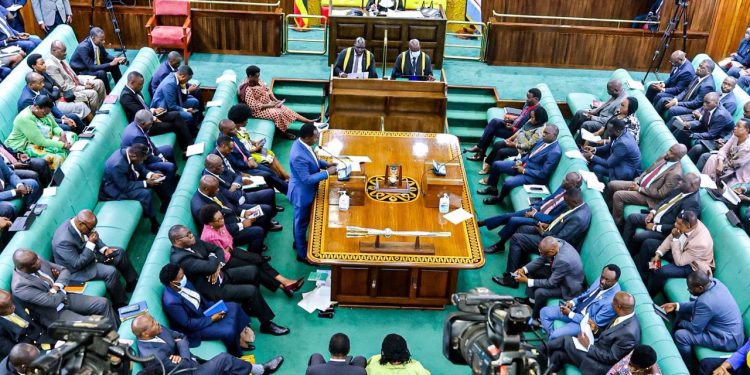KAMPALA, Uganda — Uganda’s Parliament has passed a controversial bill allowing civilians to be tried in military courts, a move that directly contradicts a recent Supreme Court ruling and is escalating political tensions. The Uganda People’s Defence Forces (UPDF) Amendment Bill, 2025, now awaits presidential assent.
The legislation, approved in a heated session Tuesday, sparked immediate outcry from opposition lawmakers and legal experts who argue it is unconstitutional. The core of the controversy lies in a provision expanding the jurisdiction of military courts to prosecute civilians, directly challenging a January 2025 Supreme Court decision that declared such trials illegal and a violation of fundamental rights.
Opposition Members of Parliament, led by Leader of Opposition Joel Ssenyonyi, staged a walkout during the vote. They accused the Defence and Internal Affairs Committee of rushing the bill through without sufficient public consultation.
Opposition MPs have announced plans to challenge the new law in court, asserting that the government is undermining judicial authority and disregarding constitutional checks and balances.
Ironically, the bill was initially presented as a response to the Supreme Court’s ruling, intended to revise outdated military laws. However, critics argue that instead of limiting the army’s power, the bill significantly expands it.
Beyond the contentious civilian trial provision, the UPDF Amendment Bill introduces several military reforms. These include the creation of new service branches within the UPDF, an overhaul of the military justice system — renaming the Unit Disciplinary Committee to the Unit Court Martial and abolishing the Court Martial Appeals Court — and establishing a new three-tier court system: Unit Court Martial, Division Court Martial, and the General Court Martial.
Additionally, the bill transfers the Pension Authority from the Ministry of Public Service to the Ministry of Defence and Veteran Affairs and includes provisions for enhanced disability compensation and improved healthcare services for soldiers.
The government has defended the legislation, stating it will modernize the UPDF and enhance service members’ welfare. However, many observers believe these reforms are being used to mask more problematic intentions.
Legal experts warn that if signed into law, the UPDF Amendment Bill could trigger a constitutional crisis, potentially forcing the courts to intervene once more in an ongoing power struggle among Uganda’s institutions.





















